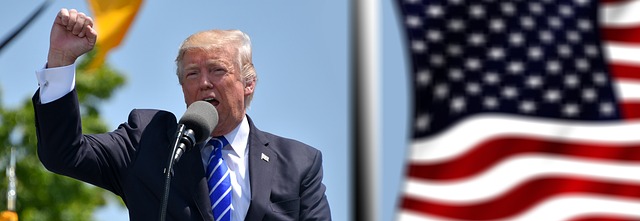- A New Kind of Tax War
In a quiet fishing village on Sri Lanka’s coast, families who once thrived on textile exports to the US are now struggling to put food on the table. That’s the reality for factory workers in Lesotho, too—where garments bound for American shelves are now priced out of the market. These aren’t just side stories; they’re direct consequences of the sweeping new tariffs and tax measures former President Donald Trump introduced in his economic push.
That nationalist “America First” policy has become a global economic shockwave, hitting the world’s smallest and most vulnerable economies the hardest. Trump’s supporters see his aggressive tax strategy as a way to revitalize American manufacturing. But the international cost—especially for small nations—has been staggering.
- What Is Trump’s Global Tax Push?
The Trump administration’s tax policies, introduced in early 2025, aimed to deter offshore production and foreign imports. That included—among other things—sweeping tariff increases (10% to 50%) on goods imported from a broad list of countries, plus corporate tax incentives for U.S.-based production. Cambodia got hit with a 49% tariff. Laos followed with 48%. Vietnam, an economically pivotal partner, saw 46% tariffs slapped on key goods. The justification was to punish “dirty economies” and protect American labor. But the economic aftershocks have far from stopped at U.S. shores.
- Small Economies, Big Consequences
For developing economies that rely heavily on exports to the US, this tax policy is a gut punch. Take Cambodia, where over 60% of total exports are destined for the US market. Garment workers in Phnom Penh are already being laid off as American retailers shift orders elsewhere or pull back due to rising costs. In Vietnam, factories are scaling down. Thousands of workers are now in limbo, unsure of how to support their families. In Africa, nations like Kenya and Ethiopia are feeling the fallout from reduced demand for horticultural exports. Thailand, with its relatively diversified economy, is feeling the sting too—agricultural and automotive exports are being throttled.
- The Vanishing Middle Ground for Trade
Trump’s tax strategy has created a diplomatic headache. Smaller countries that used to balance economic relationships with the US, China and the EU are now being forced to “pick a side.”
With America weaponizing trade through targeted tariffs and tax penalties, neutrality is becoming unaffordable. Some countries are leaning into Chinese investment despite the geopolitical risks, others are clinging to unstable relationships with the West. The cost of this polarizing pressure is showing up in fractured alliances, unstable markets and vulnerable governments.
- Multinational Corporations Are Moving—But Not Equally
In response to the recent tariffs imposed by the Trump administration, big multinational corporations are rapidly adjusting to minimize the impact. Companies like Apple, Nike and General Motors are looking at strategies like relocating production to tax-friendly countries and increasing domestic manufacturing to navigate the new landscape.
- Apple Inc.: The tech giant, heavily reliant on manufacturing in China, India, Vietnam, Malaysia, Thailand and Ireland, faces big challenges with the new tariffs. Tariffs up to 34% on Chinese imports are forcing Apple to re-evaluate its global supply chain and consider moving production to minimize the impact. (bloomberg.com)
- Nike Inc.: As one of the world’s largest footwear and apparel companies, Nike has a big presence in Vietnam where half of its shoes are made. The tariffs on Vietnamese imports are prompting Nike to look at alternative manufacturing locations and supply chain adjustments to stay in the game.
- General Motors (GM): The automaker is facing a 25% tariff on US auto imports, which will increase costs and disrupt supply chains. This is forcing GM to consider restructuring its production to mitigate the financial hit. (bloomberg.com)
While these big corporations have the resources and flexibility to adapt to these changes, small and medium sized enterprises (SMEs) especially those in smaller countries don’t have the same capacity to adapt.
- Belizean Exporters: Belize has been hit with a 10% tariff on its exports to the US, affecting key sectors like agriculture and tourism related services. The Government of Belize is analyzing the situation and plans to engage in bilateral talks with US officials to protect its interests. (sanpedrosun.com)This highlights the growing divide in corporate resilience where big multinationals can adapt to policy changes but SMEs in developing countries are at risk of extinction. The current tariff regime is not only killing these smaller businesses but also increasing global economic inequalities, burdening weaker economies.
- The Moral Dilemma: Policy vs. Humanity
This isn’t just an economic issue—it’s a moral one. When policy decisions are made for one nation, especially one as powerful as the US, others get left behind.
The “America First” ideology when enforced through aggressive tax collection becomes a “World Last” doctrine for smaller nations. As jobs disappear and poverty increases the burden falls hardest on the most vulnerable: garment workers, subsistence farmers and young laborers in developing nations.
We’ve seen economic nationalism before—from Smoot-Hawley in the 1930s to post-2008 austerity measures. But never has a single nation’s tax policy caused such targeted harm to small economies.
- What Needs to Change?
The global economy can’t thrive on isolationism. The US must consider not just domestic gains but global consequences.
We need:
- Global Impact Assessments: Before implementing tax reforms the US should study their effects on allied and dependent economies.
- Collaborative Trade Diplomacy: Revive international trade talks with developing nations at the table.
- Support for Displaced Economies: Partner with NGOs and multilateral institutions to support job retraining, trade adaptation and economic resilience in affected countries.
- When Giants Move, Small Nations Tremble
We can’t afford to look away. When the US changes its tax code it moves tectonic plates in the global economy. For small nations already teetering on economic fragility these shifts are earthquakes.
If growth in one nation comes at the cost of collapse in another are we really advancing global prosperity or just reinforcing a system where the powerful thrive and the small are left to pick up the pieces?
- Quantifying the Impact: Data and Statistics
The numbers are brutal. The April 2025 tariffs alone triggered:
- Tariffs up to 49% on imports from Cambodia, 48% on Laos and 46% on Vietnam.
- US consumer prices to rise 3% or $3,800 in additional annual household costs.
- US GDP to shrink by 1% according to Wall Street analysts and the IMF.Americans may feel the squeeze but small economies face collapse. Cambodia’s garment sector has over 700,000 workers and mass layoffs have already started. In Africa countries like Lesotho get up to 20% of their GDP from American retail chains. These are not just numbers they are human lives.
- Case Studies: Small Nations Hit Hardest
Lesotho: One of the most extreme examples, Lesotho is in economic meltdown after the US imposed a 50% tariff on garments. The industry supports 30,000 jobs and is 20% of the country’s GDP and is now collapsing.
Vietnam: Once the darling of Southeast Asian manufacturing, Vietnam’s electronics and textile exports were hit by a 46% tariff. Industrial job losses are rising and GDP growth forecasts have been slashed from 6.5% to under 5%.
Cambodia: With two-thirds of exports going to the US, the country is seeing factory closures, wage freezes and civil unrest as the economy slows dramatically.
- Global Response and Retaliation
The reaction has been fast:
- EU leaders are threatening retaliatory tariffs on US tech and agriculture.
- China has hit back with mirror tariffs and called the policy economic bullying.
- ASEAN leaders, led by Malaysian PM Anwar Ibrahim, are rallying for a united economic front and pushing for trade diversification and independence from US markets.
The IMF and World Bank are warning that these policies will destabilise developing economies and roll back decades of poverty reduction.
- The Ripple Effect on Global Markets
Markets are volatile. Stock indices in Asia and Europe have dropped sharply after Trump’s tariff announcement.
The IMF has cut global growth by 0.7%, citing uncertainty and trade disruption as major risks. Central banks in countries like Indonesia and Kenya are now considering emergency rate cuts to stabilize their economies.
The era of open trade is rapidly unwinding.
- Southeast Asia’s Recovery: The Long Haul
For countries like Cambodia, Vietnam and Bangladesh, the road to recovery will be tough.
- Cambodia is looking to diversify its export markets beyond the US and increase trade with China, South Korea and EU countries. Government programs are being launched to subsidize export losses and retrain workers for domestic industries.
- Vietnam, with a strong manufacturing base, is shifting to high-tech manufacturing and investing in trade deals like CPTPP and RCEP to expand market access. The government is also offering tax incentives to firms moving to non-US exports.
- Bangladesh, heavily reliant on garment industry, is negotiating new bilateral trade agreements with Europe and Middle Eastern countries and urging the private sector to explore digital and IT service exports.
These are steps in the right direction but without structural trade realignment and global cooperation, their growth paths are still vulnerable. US policy has moved the global chessboard but for small Southeast Asian economies, the game now requires survival strategies more than ever.
Final Word: The Moral Imperative
Trump’s tax plan may serve his political interests but it comes with moral costs we cannot ignore. In pursuit of American prosperity we must not forget the dignity, dreams and survival of small nations.
After all, economic leadership is not about domination—it’s about responsibility.




